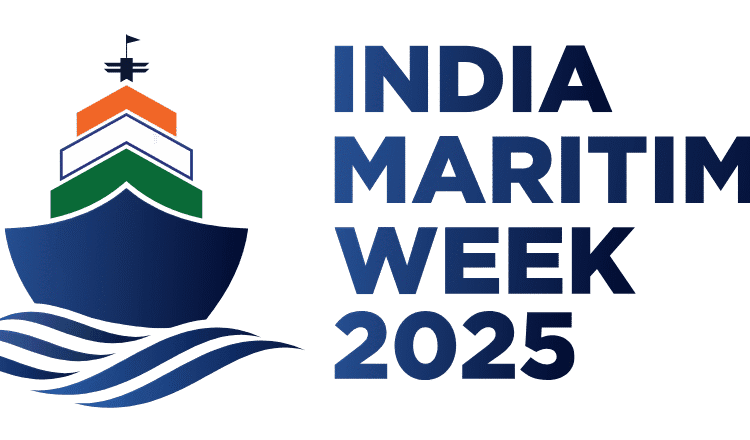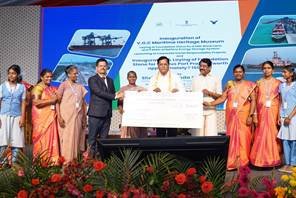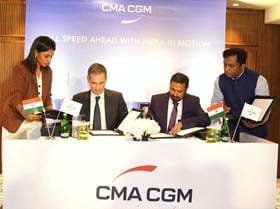CEO forum updated on India’s maritime plans
Prime Minister Narendra Modi has announced new financing options, reduce interest costs, and ease access to credit as part of reform propelling which will have the government invest nearly Rs.70,000 crore https://www.conexpoconagg.com/.
This investment will enhance domestic capacity, promote long-term financing, support the development of greenfield and brownfield shipyards, build advanced maritime skills, and generate millions of jobs for youth. He added that this initiative will also unlock new investment opportunities for all stakeholders, he told an international summit in Mumbai on 29 Oct.
The Prime Minister addressed the Maritime Leaders Conclave and chaired the Global Maritime CEO Forum at India Maritime Week 2025 in Mumbai, which had participation from over 85 countries – CEOs of major shipping giants, startups, policymakers, and innovators.
He noted the attendance of representatives from small island nations and stated that their collective vision has significantly enhanced the synergy and energy of the summit http://commerce.gov.in.
He said that Memoranda of Understanding (MoUs) worth lakhs of crores of rupees have signed in the shipping sector at India Maritime Week 2025 in Mumbai, reflected the global confidence in India’s maritime capabilities.
Noting that several projects related to the shipping sector have been launched at the Maritime Leaders Conclave, held along with the conference, he said the presence of participants at the event stands as a symbol of their common commitment.
“In the 21st century, India’s maritime sector is advancing with great speed and energy,” emphasised the Prime Minister, highlighting that the year 2025 has been particularly significant for the sector and shared key achievements https://www.bseindia.com/.
He highlighted that Vizhinjam Port, India’s first deep-water international trans-shipment hub, is now operational, noting that the world’s largest container vessel recently arrived at the port, marking a proud moment for every Indian.
PM Modi further stated that in 2024–25, India’s major ports have handled the highest cargo volumes ever, setting a new record. He announced that for the first time, an Indian port has launched a megawatt-scale indigenous green hydrogen facility, an achievement credited to Kandla Port. He added that another major milestone has been achieved at JNPT, where Phase 2 of the Bharat Mumbai Container Terminal has commenced https://www.nseindia.com/.
“This has doubled the terminal’s handling capacity, making it India’s largest container port,” said the Prime Minister, emphasizing that this was made possible due to the largest FDI in India’s port infrastructure and expressed special gratitude to partners from Singapore for their contribution.
PM Modi informed delegates that this year, India has taken major steps towards next-generation reforms in the maritime sector. “The colonial shipping laws, over a century old, have been replaced with modern and futuristic legislation suited for the 21st century,” he said, remarking that these new laws empower State Maritime Boards, strengthen safety and sustainability, and expand digitization in port management https://sbi.com.in/.
Further noting that under the Merchant Shipping Act, Indian laws have been globally aligned with international conventions, Modi said, this alignment has enhanced trust in safety standards, improved ease of doing business, and reduced government intervention. He expressed confidence that these efforts will further boost the confidence of stakeholders and investors.
The Prime Minister told delegates that the Coastal Shipping Act has been designed to simplify trade and strengthen supply chain security. He emphasized that the Act ensures balanced development along India’s extensive coastline.
Highlighting the ‘One Nation, One Port Process’, which will standardize port-related procedures and significantly reduce documentation requirements, PM Modi remarked that these reforms in the shipping sector are a continuation of India’s decade-long reform journey https://www.iea.org/.
Under the Maritime India Vision, more than 150 new initiatives have been launched, resulting in nearly doubling the capacity of major ports, substantial reduction in turnaround time, and a new momentum in cruise tourism.
The Prime Minister added that cargo movement on inland waterways has increased by over 700 percent, with the number of operational waterways rising from three to thirty-two. He further stated that the net annual surplus of Indian ports has increased ninefold over the past decade.
“India’s ports are now counted among the most efficient in the developing world, and in many cases, are outperforming ports in the developed world”, exclaimed the Prime Minister.
He shared key performance statistics, noting that the average container dwell time in India has reduced to less than three days, which is better than several developed nations. He highlighted that the average vessel turnaround time has dropped from ninety-six hours to just forty-eight hours, making Indian ports more competitive and attractive for global shipping lines.
Modi added that India has shown significant improvement in the World Bank’s Logistics Performance Index.
The PM emphasized that India’s focus is on the Blue Economy and Sustainable Coastal Development. He highlighted the government’s strong emphasis on green logistics, port connectivity, and coastal industrial clusters.
“Shipbuilding is now among India’s top priorities”, underscored the Prime Minister. Recalling India’s historical prominence in shipbuilding, he noted that the country was once a major global centre in this field. He pointed out that not far from the venue lie the Ajanta Caves, where a Sixth Century painting depicts the design of a three-masted ship.
The Prime Minister remarked that this design, seen in ancient Indian art, was adopted by other countries centuries later.
Underlining that ships built in India were once a vital part of global trade, Modi noted that India later advanced in the ship-breaking sector and is now accelerating efforts to reach new heights in ship-making. He mentioned that India has granted infrastructure asset status to large ships, a policy decision that will open new avenues for all shipbuilders present at the event.
Prime Minister remarked that the land hosting the conclave not only laid the foundation of maritime security but also asserted Indian strength across the trade routes of the Arabian Sea.
Emphasising India’s commitment to strengthening global supply chain resilience and noting that the country is actively building world-class mega ports, PM Modi reaffirmed the importance of a Rs.76,000 crore port is being constructed in Vadhavan, Maharashtra.
He elaborated that India is working to quadruple the capacity of its major ports and increase its share in containerized cargo, and affirmed that all stakeholders present are key partners in achieving these goals and welcomed their ideas, innovations, and investments.
He reiterated that India permits 100 percent FDI in ports and shipping, and that public-private partnerships are rapidly expanding. Under the “Make In India, Make For The World” vision, incentives are being provided, and states are being encouraged to attract investments.
He urged investors from various countries to seize this moment to engage and expand in India’s shipping sector, stating that this is the right time.
Citing the India–Middle East–Europe Economic Corridor as an example, he noted that it will redefine trade routes and promote clean energy and smart logistics.
Emphasising India’s focus on inclusive maritime development, the Prime Minister stated that this goal can only be achieved by empowering Small Island Developing States and Least Developed Countries through technology, training, and infrastructure.
He highlighted the need for collective action to address climate change, supply chain disruptions, economic uncertainty, and maritime security.
PM Modi called upon all participants to move together towards peace, progress, and prosperity, and to build a sustainable future.
Background
The Global Maritime CEO Forum, the flagship event of India Maritime Week 2025, brought together CEOs of global maritime companies, major investors, policy-makers, innovators, and international partners to deliberate on the future of the global maritime ecosystem. The Forum will serve as a key platform for dialogue on sustainable maritime growth, resilient supply chains, green shipping, and inclusive blue economy strategies.
Organised from 27th to 31st October 2025, under the theme “Uniting Oceans, One Maritime Vision”, IMW 2025 will showcase India’s strategic roadmap to emerge as a global maritime hub and a leader in the Blue Economy. IMW 2025 will draw participation from over 85 countries, featuring more than 1,00,000 delegates, 500+ exhibitors and 350+ international speakers. Fiinews.com










